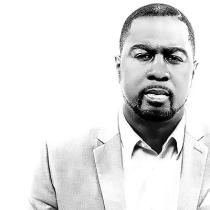Why the narrative about declining NBA ratings is wrong
LAKE BUENA VISTA, Fla. — The NBA has been singled out for its ratings decline by critics and certain sects of the media, even though it isn’t the only league suffering a viewership decline.
“I think [the kneeling] has been horrible for basketball,” President Donald Trump said on Fox Sports Radio in August. “Look at the basketball ratings. They are down to a very low number. They have enough politics with guys like me. They don’t need more as they are going up for the shot. There was a nastiness about the NBA the way it was done, too. The NBA is in trouble. Big trouble. Bigger trouble than they understand.”
Sen. Ted Cruz (R-Texas) and Dallas Mavericks owner Mark Cuban recently argued on Twitter about NBA TV ratings, but the numbers show all sports are suffering a decline.
Yes, the NBA Finals are down 48 percent from last year, but there are a number of contributing factors. The ratings purge isn’t an isolated affair.
A number of observers have suggested that players speaking out on racial inequality during news conferences and kneeling for the national anthem, and the social justice messages on the back of the jerseys during the NBA’s restart have negatively affected the league’s brand and ratings.
Los Angeles Lakers star LeBron James has even been blamed for the drop in viewership because of his willingness to speak freely.

But the MLB playoffs (down 39 percent), the NFL (down 14 percent), the NHL playoffs (down 25 percent) and the Stanley Cup Final (down 61 percent) are all experiencing ratings drops.
These dips are seemingly overlooked because it doesn’t fit the narrative that a league predominantly composed of Black men raising concerns over the justice system and condemning systemic racism is bad for business.
According to Nielsen Media Research, the racial composition of the NBA’s audience for this year’s playoffs is the same as last year’s.
The audience for the 2020 NBA Finals through the first four games is 45 percent white and 55 percent non-white; it was 46 percent white, 54 percent non-white in 2019. This suggests that the people claiming to be turning off their televisions because of the social justice messaging aren’t the ones tuning in regularly in the first place.
So why is the NBA being targeted by political talking heads who are attempting to make the connection between social justice efforts and a TV ratings decline? It’s likely just that — politics — with race being an unfortunate touchstone in the discussion.
There are, however, numerous contributing factors as to why all major sports leagues are seeing a ratings drop.
In unprecedented circumstances caused by the COVID-19 pandemic, the NFL, NBA, MLB and NHL were playing at the same time, giving fans a multitude of options. The NBA restart was played in the summer, which doesn’t allow for a true ratings comparison of prior years because the league typically concludes in June. And it’s an intense election year in which the president was hospitalized with the coronavirus, which dominated the news cycle.
Game 3 of the NBA Finals was the first time a Finals game had ever competed with the NFL. Yet still, the NBA is fairing well compared to the other sports leagues.
The average NBA seeding game on ESPN drew an audience (1.2 million viewers) that was larger than the average 2020 MLB regular-season game on the same network (749,000). The average NBA playoff game on ESPN/TNT (2.1 million viewers) drew an audience more than three times the size of the NHL playoff audience on NBC Sports (651,000 viewers).
Game 5 of the NBA Finals is 9 p.m. ET Friday on ABC.
Despite the selective rhetoric denouncing the NBA for not muzzling its players, the association’s central figure believes supporting open social discussions without penalty on issues affecting people and communities was the right call.
“There are a lot of fans, especially given all that’s going on in the world right now, who look to sports as a respite,” NBA commissioner Adam Silver said in his NBA Finals address last week. “My response is that, again, I’m listening. And I understand that point of view, too. But these are unique times, and I think that given the circumstances, I still firmly believe it was and is the right thing to do.”
More from Yahoo Sports:


